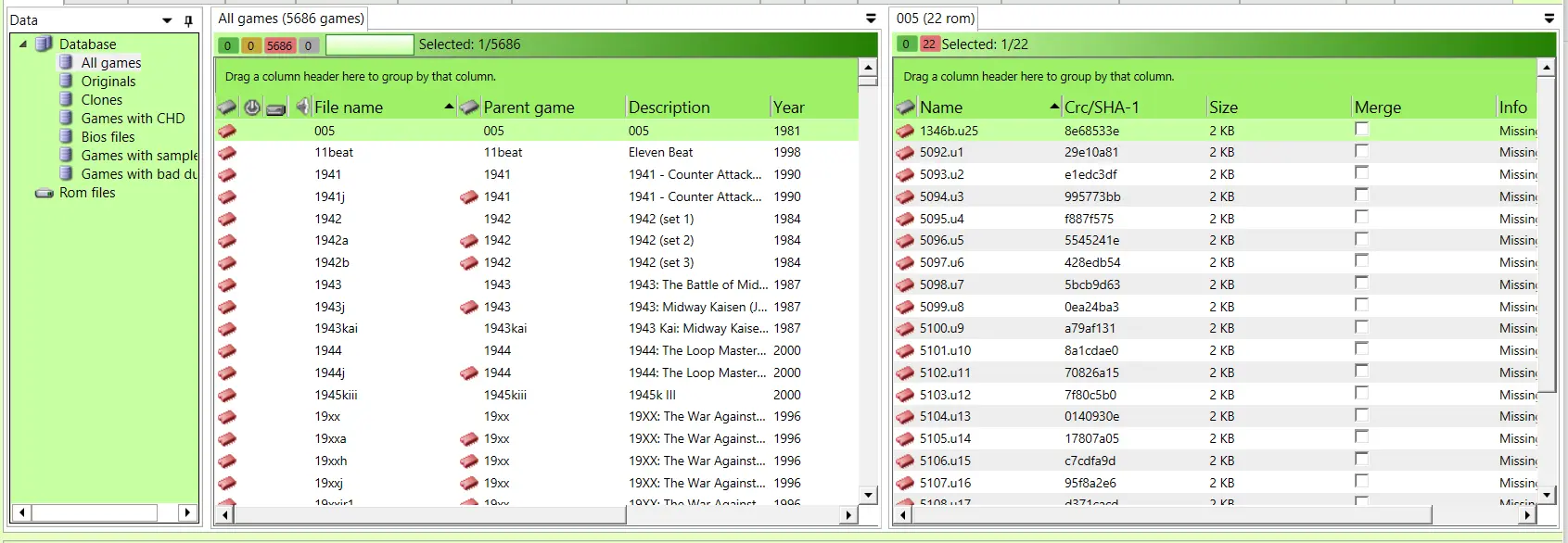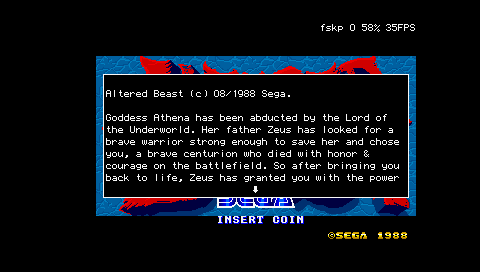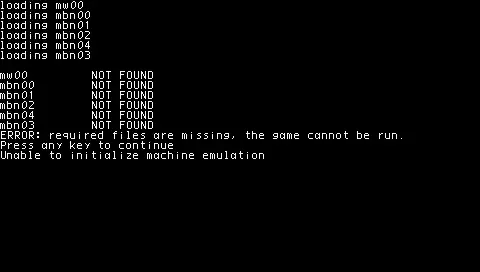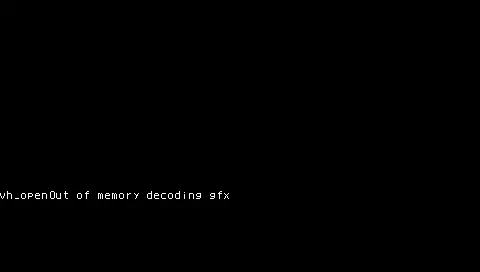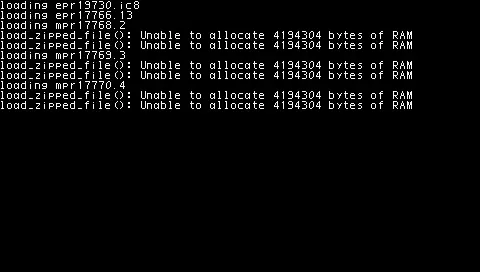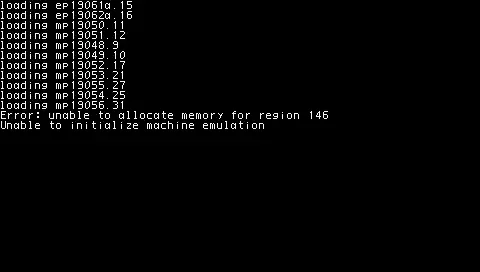Full list of games included in each build.
pspMAME is a straight port of MAME 0.97 (released for PC in 2005).
Out of the commonly available romsets, the ones closest to this version are AdvanceMAME (0.106) and MAME 2003 (0.78).
A .dat file is an XML-formatted file containing the list of all the ROMS each version of MAME is compatible with.
Link to the MAME 0.97 .dat file.
You can use this file with RomCenter (or any other ROM-managing app of your choice).
Unpack the .dat file and drag it onto the RomCenter window. Select Create the database. Once the database has been created, you will be greeted by a list of the 5,600+ games supported by MAME 0.97 (left), and the individual ROMs required by the selected game (right).
Drag the folder with your ROMs on the RomCenter window. The games that appear in green are good. The ones in yellow require a fix (they might have the wrong file name, for instance), and the ones in red are just not compatible with MAME 0.97 (they might be intended for earlier/later versions of MAME).
Once you are done with RomCenter, simply copy pspMAME and the green ROMs to your memory stick:
[unit letter]:\PSP\GAME\pspMAME\roms
Just like the PC version of MAME 0.97, pspMAME supports history.dat files. These are text files including historical details and trivia for each of the games.
The history.dat file available from arcade-history.com is too large to be loaded on a PSP. Instead, smaller files are available under pspMAME\hist that include only the subset of games included in each of the builds.
Not just the zip files, but the ROMs inside them, need to match the specifications of the MAME 0.97 .dat file precisely. Drag the offending ROM on RomCenter and see the suggested fixes.
pspMAME does not implement any form of caching. Because of that, you will run out of memory pretty quickly even on a PSP slim when trying to load larger ROMs.
Similar messages might also appear for smaller ROMs in case of memory leaks. In this case, try exiting and reloading pspMAME to free the memory up again.
MAME 0.97 supports 5,661 ROMs. Compile it with that many drivers, and it will crash the moment you try to launch it. Use dedicated makefiles instead.
make all- move all the
.alibraries fromobj/mametoobj/drivers make TARGET=Nichibutsu- varies according to the name of the makefile in/makes.
The builds included in the release feature only a small subset of all the games MAME 0.97 has to offer. If your favorite arcade game is not included in one of them, creating a custom build is an option.
The Arcade Database website is a great starting point.
- First - is the game included in MAME 0.97? Open the Arcade Database page for the game of your choice, and check the 'First release' section.
- Copy one of the makefiles under
makes. ChangeDTINY_NAMEandDTINY_POINTERto match the game's name under the list of drivers. - Change the list of
CPUsandSOUNDsto match the game's hardware. The Arcade Database entry for the game (video and audio sections) can again be a useful reference. - In the Terminal, type
make TARGET=foo, wherefoois the name of your makefile. - You will most likely hit a few stray undefined references on the first attempt. Check in which files the missing functions are declared by searching the pspMAME repo, and include them in the makefile.
- settings are now saved in
pspmame.cfg; - save states work again (shortcut must be defined in the OSD that appears by pressing L while in the game);
- button configurations saved in a
[rom name].cfgfile (but see above); SHOW FPSin the settings now works;LIMIT SPEEDnow works;- UI now in (proper) English;
- there is finally an option to quit in the OSD menu;
- Lua launcher borrowed from Brujito's Multi Emulator;
- all scaling options other than x1, auto-stretch and rotate are broken;
- [SOLVED] files
default.cfgand[rom name].cfgmust exist in thecfgfolder, or the emulator will get stuck while loading a rom (error: bad file descriptor); - [SOLVED] a
stafolder must exist, or game states won't be saved; - [SOLVED] nvram files are not created (they still work if copied into the
nvramfolder);
- TMK: Japanese code who first ported MAME 0.97 to PSP back in 2005.
- PSP Development Kindergarten (PSP開発幼稚園): the Japanese coders who managed to speed up TMK's port enough to make it playable. This version of pspMAME is based entirely on their work.
- Brujito: the code for the launcher is taken from his Multi Emulators.

